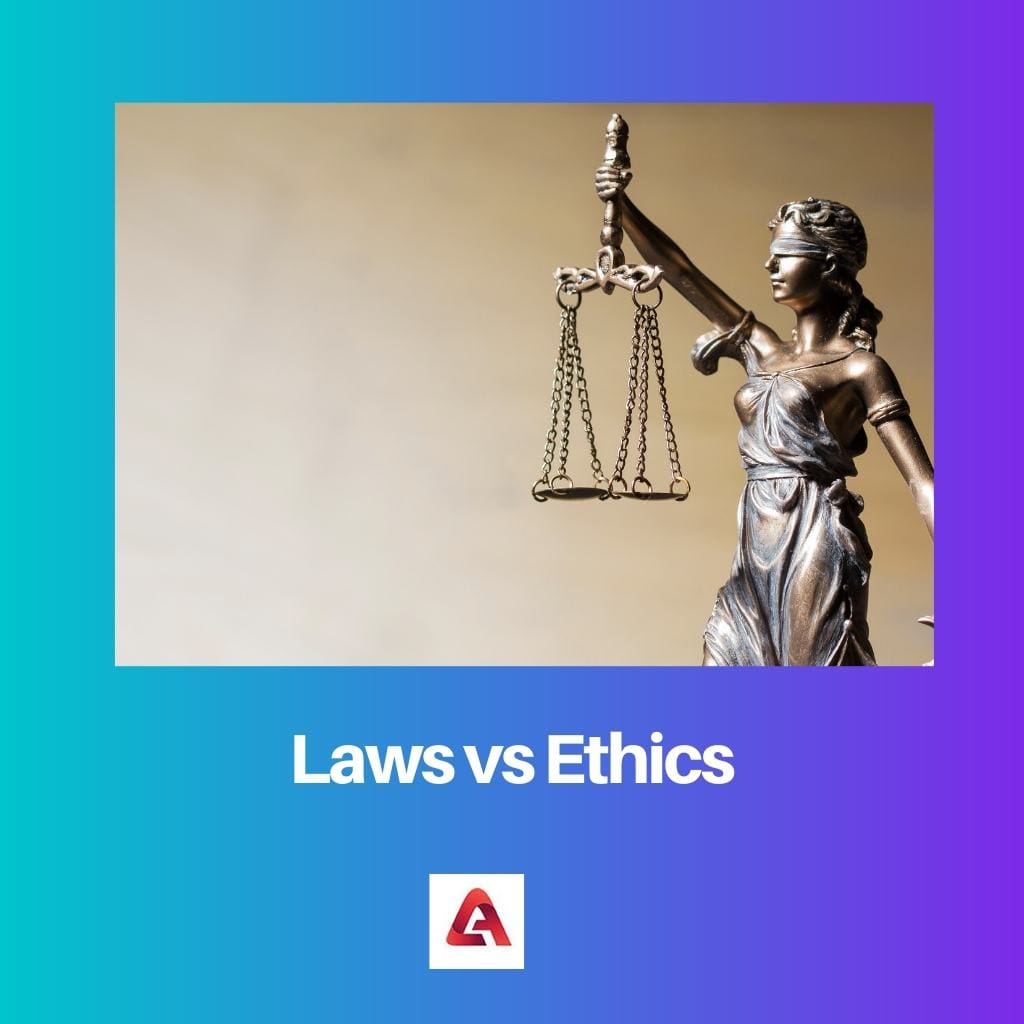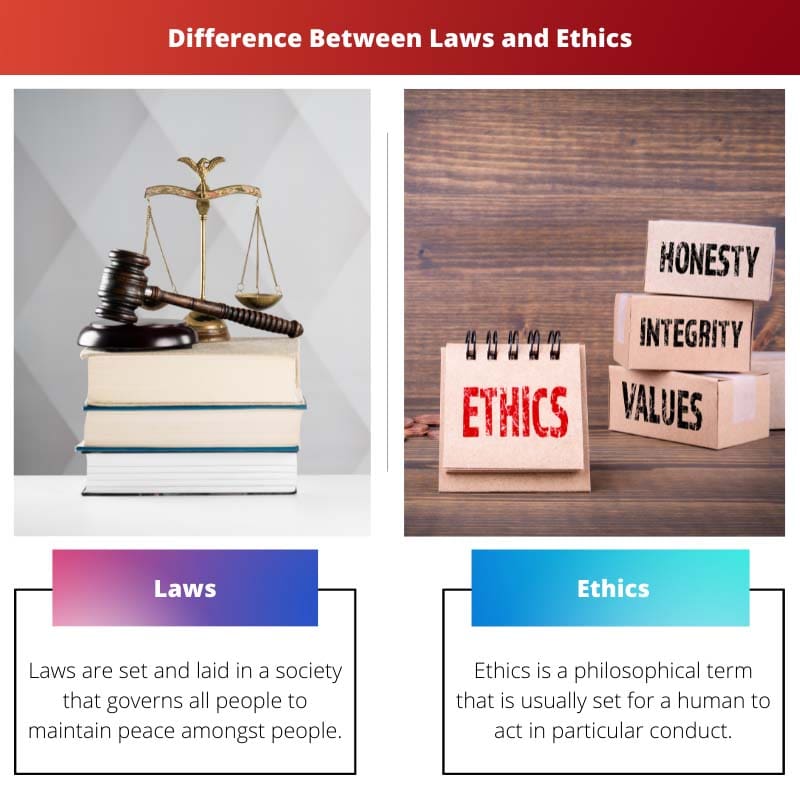For any state’s healthy functioning, some laws have been laid down in the constitution, a book that contains all the laws and rules of a particular country but many times, laws and ethics are mismatched, creating a lot of confusion.
Key Takeaways
- Laws are rules set by a governing body and enforced through legal means, while ethics are moral principles that guide individual behaviour and decision-making.
- Laws are based on ethical principles, but there can be differences between legal and ethical.
- Violating laws can result in legal consequences while violating ethical principles can result in social or personal consequences.
Laws vs Ethics
A set of rules a government or other authority establishes to govern a society is called law. Ethics refers to a set of moral principles and values that guide individual behaviour and decision-making.

However, laws are mandatory for everyone. If not, sometimes severe steps can be taken. For example, do not drink and drive is a law. On the other hand, respecting and obeying your elders is an ethic a person inherits from birth.
Laws are rules that any organization has laid down at any level, such as national, regional, or sometimes even international; these laws are laid for every person to follow if no strict actions can be imposed.
Ethics are principles that have to be followed by every person to reflect positive behaviour in society and helps them live a good life by following the required procedures.
Comparison Table
| Parameters of Comparison | Laws | Ethics |
|---|---|---|
| Meaning | Laws are set and laid in a society that governs all people to maintain peace among people. | Ethics is a philosophical term set for a human to act in particular conduct. |
| Governed By | Laws are set and governed by the government | Ethics are set by communities, individuals, educational institutes, and the workplace. |
| Violation | Laws are violative and can be misused. | Ethics are not violative. |
| Punishment | Strict actions can be taken, like fines and, in some cases, punishment. | No punishment is given in case of not following ethics, at most, a formal professional warning. |
| Aim | To maintain peace between the people of the society and a healthy environment. | Ethics are laid in society for a person to know right and wrong. |
| Example | Do not drink and drive is a law laid down to maintain peace. If not followed, it is a criminal offence. | Respecting your colleagues at the workplace and reflecting positive behaviour are examples of professional ethics. |
What are Laws?
Law is described as the set of rules and regulations laid down lawfully that every person is required to follow living in the society irrespective of gender, caste, etc.
A law helps the country maintain law and order and peace among the citizens and prevent any miss happenings.
The country’s judicial system maintains and makes a law, and every person is bound to follow the laws. Laws clearly define the limit of what a person can or cannot do while living in a particular country.
Every country has different laws and regulations laws are also punishable. If found harassing the loss, the person can be in a serious situation.
Laws reflect the ethical values of the person and his or her upbringing.
There are many examples, but one example does not drink and driving, which is the law set by every country to maintain peace, reduce the number of accidents, and not cause damage to other people.
Laws are legally binding, and there expressed, published, or in written value. The government sets laws, but laws can be of a particular place, like schools, colleges, or workplaces.

What are Ethics?
Ethics or ethical values is a philosophical term laid down by communities, individuals, or sometimes many professional places like offices, schools, and colleges.
Ethics guide the person about what is good or bad; it is a collection of fundamental principles that guide the human’s character.
Ethics is a code of conduct and the social desires that every person should follow.
Some of the most common ethics like respecting your elders, respecting your colleagues at the workplace, and respecting your classmates in a class setup Ethics define a person’s character. The person following ethics shows positive behaviour towards his individual, peers, and even society and is considered perfect.
But disobeying these ethics is considered a threat to social ethics and is not punishable.
Every person must follow these ethics, but it is a personal choice to follow ethics like. An inferior person who doesn’t follow these rules is considered a threat to society.
Ethics mainly apply to the kind of upbringing of that person in the kind of society in the community that has grown. Ethics is much more of a philosophical term that differs greatly from the law.

Main Differences Between Laws and Ethics
- The law is legally binding for every person living in society, and every person is required to follow them, whereas Ethics is not binding to a human.
- Laws are written down as conducts and principles, which everyone must follow, whereas ethics are human conduct and a way of living in a society.
- Breaking the law is punishable; anyone seen as disobeying can be in danger, like imprisonment, but ethics are not punishable. It makes the person character in society.
- Laws are written principles in the constitution ( a book containing all the principles and laws), whereas ethics do not exist in a written form.
- Government is the ultimate lawmaker in any country and expects everyone to follow, whereas communities and society lay ethics.




